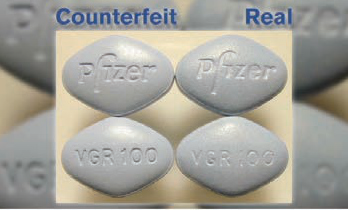


IP INFRINGEMENT
What is intellectual property (IP) infringement?
An IP infringement is the violation of an intellectual property right. There are several types of IP rights, these include copyrights, patents, and trademarks. Therefore, an IP infringement may for instance be a copyright infringement, patent infringement or infringement of a registered trademark. IP infringements threaten national economies, public safety, and health.

Common trademark infringements
Trademark infringement occurs when there is a violation of the exclusive rights of the trademark owner by using a trademark which is identical, or confusingly similar, to the registered trademark in respect to the same or similar type of goods or services and without authorization from the trademark owner. Other kinds of trademark infringements include ambush marketing, cybersquatting, passing off, and trademark dilution.
Ambush Marketing
This is a marketing campaign that takes place around an event but does not involve payment of a sponsorship fee to the event. For most events of any significance, one brand will pay to become the exclusive and official sponsor of the event in a particular category or categories, and this exclusivity creates a problem for one or more other brands. Those other brands then find ways to promote themselves in connection with the same event, without paying the sponsorship fee and without breaking any laws.
In the build up to the 2010 World Cup in South Africa, FIFA and some official sponsors of the tournament were faced with such traders who were using the event to market their products and services without FIFA’s authority. For example, a passenger airline, in its advertisement, described itself as the “Unofficial National Carrier of the You Know-What” in possible reference to the soccer event. At Euro 2008 Dutch buyers of Heineken beer were given green That’s to wear to the football tournament but were however asked to remove them on entrance into the stadia as they infringed on the IP rights (IPRs) of those who had sponsored the tournament.
Cyber squatting
Cybersquatting is a derogatory term used to describe the practice of registering and claiming rights over Internet domain names which are, arguably, not for the taking. The cybersquatter then offers to sell the domain to the person orcompany who owns a trademark contained within the name at an inflated price. Some Cyber squatters put up derogatory remarks about the person or company the domain is meant to parrot to encourage the subject to buy the domain from them.
Passing Of
Passing off is a common law tort which can be used to enforce unregistered trademark rights. The tort of passing off protects the goodwill of a trader from a misrepresentation that causes damage to goodwill. The law of passing off prevents one person from misrepresenting his or her goods or services as being the goods or services of the claimant and prevents one person from holding out his or her goods or services as having some association or connection with the plaintiff when this is not true.
Trademark Dilution
In most cases, trademark dilution involves an unauthorized use of another’s trademark on products that do not compete with, and have little connection with, those of the trademark owner. For example, a famous trademark used by one company to refer to hair care products might be diluted if another company began using a similar mark to refer to breakfast cereals or spark plugs, or a renowned trademark by an automobile manufacturer might be diluted if another company began using that mark to refer to watches.

Confusing Similarity
Confusing similarity is when a trademark raises conflicts due to its similarity with another registered trademark. The reputation attached to a trademark is significant, such that “Micro safe” or “Micro Software”, although clearly not identical, could potentially be confusingly similar and amount to an infringement.


